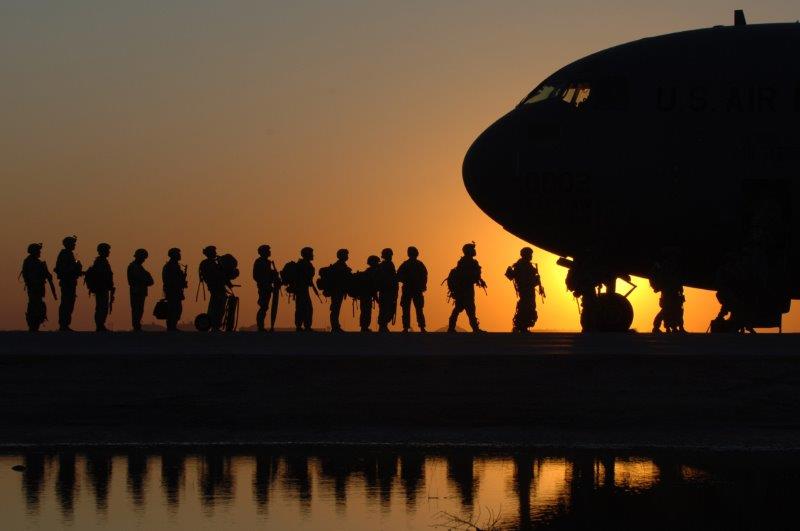Are you a teenager with a passion for firefighting? Can you be a volunteer firefighter at 16? It really depends on the state so there is no one criteria that fits all. In this article, we explore the opportunities and regulations surrounding teen firefighters and their involvement in volunteer fire departments and we'll use New York state as an example when possible.
Key Takeaways:
- Restricted member programs allow minors aged 16 and 17 to engage in volunteer firefighting activities in certain jurisdictions.
- Opinions of the New York State Comptroller serve as the basis for admitting 16 and 17-year-olds into restricted membership.
- Child labor laws do not apply to volunteer firefighters between the ages of 16 and 18, as stated by the New York State Attorney General.
- Young volunteer firefighters have the opportunity to gain valuable skills, contribute to their community, and be part of a supportive team.
- Minimum requirements for becoming a volunteer firefighter vary by department, including age, driver's license, background check, and physical evaluation.
Benefits of Being a Volunteer Firefighter at a Young Age
Becoming a volunteer firefighter at a young age can offer numerous benefits. Firstly, participants in a restricted member program are considered active firefighters and are covered by the Volunteer Firefighters' Benefit Law, providing them with certain legal protections and benefits. Additionally, restricted member firefighters may participate in New York State-sponsored fire service training with parental approval, allowing them to learn new skills and gain valuable knowledge in the field.
Joining the fire department as a young volunteer can also offer a sense of accomplishment, achievement, and pride in the work they do. It provides an opportunity to make new friends and become part of a team, fostering a strong sense of camaraderie. Volunteering as a firefighter allows individuals to give back to their community and make a real difference in people's lives.
Overall, being a volunteer firefighter at a young age can have a transformative impact on both personal and professional development. It instills a strong work ethic, responsibility, and leadership skills. It also exposes young individuals to a variety of experiences and challenges, helping them build resilience and adaptability. By volunteering in the fire service, young individuals gain valuable life skills and contribute to the well-being and safety of their community.
Requirements and Training for Young Volunteer Firefighters
Young individuals interested in becoming volunteer firefighters at the age of 16 must fulfill certain requirements and undergo specific training. While the exact prerequisites may vary depending on the fire department and locality, there are common elements to consider.

Firstly, aspiring teen volunteer firefighters typically need to meet a minimum age requirement set by the department. This is often 16 years old, although it's essential to check with the specific fire department for any additional age restrictions. Additionally, candidates are usually required to possess a valid driver's license to be able to respond to emergency calls and aid in firefighting efforts.
Background checks are a typical part of the application process for young volunteer firefighters. These checks ensure that individuals have no criminal history that could hinder their ability to serve effectively and responsibly. The specific details and scope of the background check will vary depending on the department's policies.
Once accepted as a volunteer firefighter, training becomes a crucial part of the journey. Fire departments provide comprehensive training programs that equip young firefighters with the necessary skills and knowledge to perform their duties safely and effectively. The training typically includes certifications for various levels and specialties such as Firefighter I, Firefighter II, Emergency Medical Responder, Emergency Medical Technician, Paramedic, Hazmat Awareness, Hazmat Operations, Traffic Incident Management, and Wildland Firefighter. The duration and intensity of the training will vary depending on the department's requirements and the scope of the position.
Table: Required Training for Young Volunteer Firefighters
| Training Level | Description |
|---|---|
| Firefighter I | An introductory level of training that focuses on basic firefighting skills and techniques. |
| Firefighter II | Intermediate level training that builds upon the skills learned in Firefighter I and covers more advanced firefighting tactics. |
| Emergency Medical Responder | Training in providing basic medical care and first aid in emergency situations. |
| Emergency Medical Technician | A higher level of medical training that allows firefighters to provide more advanced medical support. |
| Paramedic | The highest level of medical training, enabling firefighters to provide advanced life support and administer medications. |
| Hazmat Awareness | Training on understanding and identifying hazardous materials and the appropriate response procedures. |
| Hazmat Operations | Training on actively mitigating hazardous materials incidents and carrying out appropriate decontamination procedures. |
| Traffic Incident Management | Instruction on managing traffic incidents effectively and ensuring the safety of responders and the public. |
| Wildland Firefighter | Specialized training for combating wildfires and operating in wilderness environments. |
Responsibilities and Opportunities for Young Volunteer Firefighters
Young volunteer firefighters play a vital role in the operations of a fire department, contributing to various aspects of their work. While their responsibilities may vary depending on their training level and department guidelines, there are numerous opportunities for them to make a difference in their community.
Did You Know: According to the National Fire Protection Association (NFPA), volunteer firefighters make up a significant portion of the firefighting force in the United States. Approximately 65% of all firefighters in the U.S. are volunteers, and this includes individuals who began their service as young as 16 years old.
One of the key responsibilities of teen volunteer firefighters is fire suppression. They can assist in extinguishing fires under the supervision of experienced firefighters, following established protocols and safety procedures. This allows them to gain hands-on experience and develop critical firefighting skills.
Table: Responsibilities of Young Volunteer Firefighters
| Responsibilities | Description |
|---|---|
| Emergency Medical Services | Young firefighters may receive training to provide basic medical assistance at emergency scenes, supporting paramedics and EMTs. |
| Hazardous Materials Response | They can be involved in responding to situations involving hazardous materials, assisting in containment and mitigation efforts. |
| Search and Rescue | Young volunteers may participate in search and rescue operations, helping locate and extract individuals in distress. |
| Traffic Incident Management | They can assist in managing traffic incidents, ensuring the safety of responders and individuals involved in accidents. |
| Public Information and Education | Young firefighters can take part in educating the public about fire safety, conducting presentations and demonstrations. |
| Inspections | They may contribute to conducting fire safety inspections in residential and commercial buildings, ensuring compliance with regulations. |
| Fundraising and Public Events | Young volunteers often participate in fundraising activities and assist in organizing public events to support the fire department. |
It's important to note that not all young volunteers need to become first responders. Fire departments rely on community volunteers to assist with non-emergency tasks that support the overall operations. These tasks can include fundraising, community outreach, fire prevention education, and other support activities that help maintain the efficiency and effectiveness of the department.
By actively participating in these responsibilities, young volunteer firefighters develop valuable skills, contribute to their community's safety, and gain a sense of pride and accomplishment in their service.
Conclusion
In conclusion, being a teen volunteer firefighter offers a unique and rewarding experience. It allows young individuals to serve their community, develop valuable skills, and foster a sense of pride and accomplishment. Despite legal and safety considerations, such as child labor laws and department restrictions, the fire service provides an opportunity for young volunteers to make a difference while exploring potential future career paths.
By adhering to the guidelines and requirements set by the fire department and the authority having jurisdiction, young volunteers can have a fulfilling and meaningful involvement in the fire service. They can participate in various activities such as fire suppression, emergency medical services, public education, and community outreach. The training and experience gained as a volunteer firefighter can also serve as a solid foundation for their personal and professional growth.
In summary, the path to becoming a teen volunteer firefighter may have certain limitations, but its benefits far outweigh the challenges. Through dedication, commitment, and teamwork, young individuals can contribute to their community, learn essential life skills, and establish lifelong connections. Ultimately, being a volunteer firefighter at a young age can shape the future of these individuals, instilling important values and a strong sense of civic responsibility.
FAQ
Can individuals under the age of 18 become volunteer firefighters?
Yes, youth programs in volunteer fire departments allow individuals under the age of 18 to engage in volunteer firefighting activities with certain restrictions.
What are restricted member programs?
Restricted member programs, also known as junior firefighter programs, are designed to provide opportunities for young individuals to explore the fire service while ensuring their safety and protection.
What are the requirements for joining a restricted member program?
Minors aged 16 and 17 can become active "firefighters" in a restricted member program with parental approval and coverage under the Volunteer Firefighters' Benefit Law.
Are there any legal considerations for young volunteer firefighters?
While child labor laws may apply to restricted members, opinions of the New York State Attorney General have stated that child labor laws do not apply to volunteer firefighters between the ages of 16 and 18.
What are the benefits of being a volunteer firefighter at a young age?
Becoming a volunteer firefighter at a young age offers numerous benefits, including legal protection, the opportunity to learn new skills, a sense of accomplishment, and the chance to give back to the community.
What are the minimum requirements for becoming a volunteer firefighter?
The minimum requirements for becoming a volunteer firefighter vary by department but generally include meeting a minimum age requirement, having a valid driver's license, passing a background check, and completing a physical evaluation.
What training is provided to young volunteer firefighters?
Young volunteer firefighters may be asked to complete certification training for various levels and specialties, such as Firefighter I, Firefighter II, Emergency Medical Responder, and Hazmat Operations, among others.
What responsibilities do young volunteer firefighters have?
Young volunteer firefighters may be involved in fire suppression, emergency medical services, hazardous materials response, search and rescue, public information and education, inspections, fundraising, and community outreach, among other tasks.
Can young volunteers help the fire department without becoming first responders?
Yes, fire departments often rely on community volunteers to assist with non-emergency tasks, such as fundraising, community outreach, fire prevention education, and other support activities.
Can a 16-year-old participate in volunteer firefighting, or do regulations prohibit their involvement due to liability concerns?
While it varies by location, many emergency services personnel permit the recruitment of 16-year-olds as volunteer firefighters. It's crucial to note that local regulations and the discretion of the fire chief often play a significant role in these decisions. To mitigate liability concerns, thorough training and supervision are typically in place to ensure the safety of young recruits in this occupation.
What are the chief requirements for 16-year-olds who want to become volunteer firefighters, and how does the recruitment process work for them?
The recruitment process for 16-year-olds seeking to become volunteer firefighters usually involves meeting certain chief requirements. First and foremost, aspiring volunteers must check with their local fire department to determine if they allow participation at this age. If permitted, they often need parental consent and may need to complete specialized training programs to ensure they're well-prepared for this occupation in emergency services. Always consult with your local fire chief or department for specific details regarding recruitment at the age of 16.











